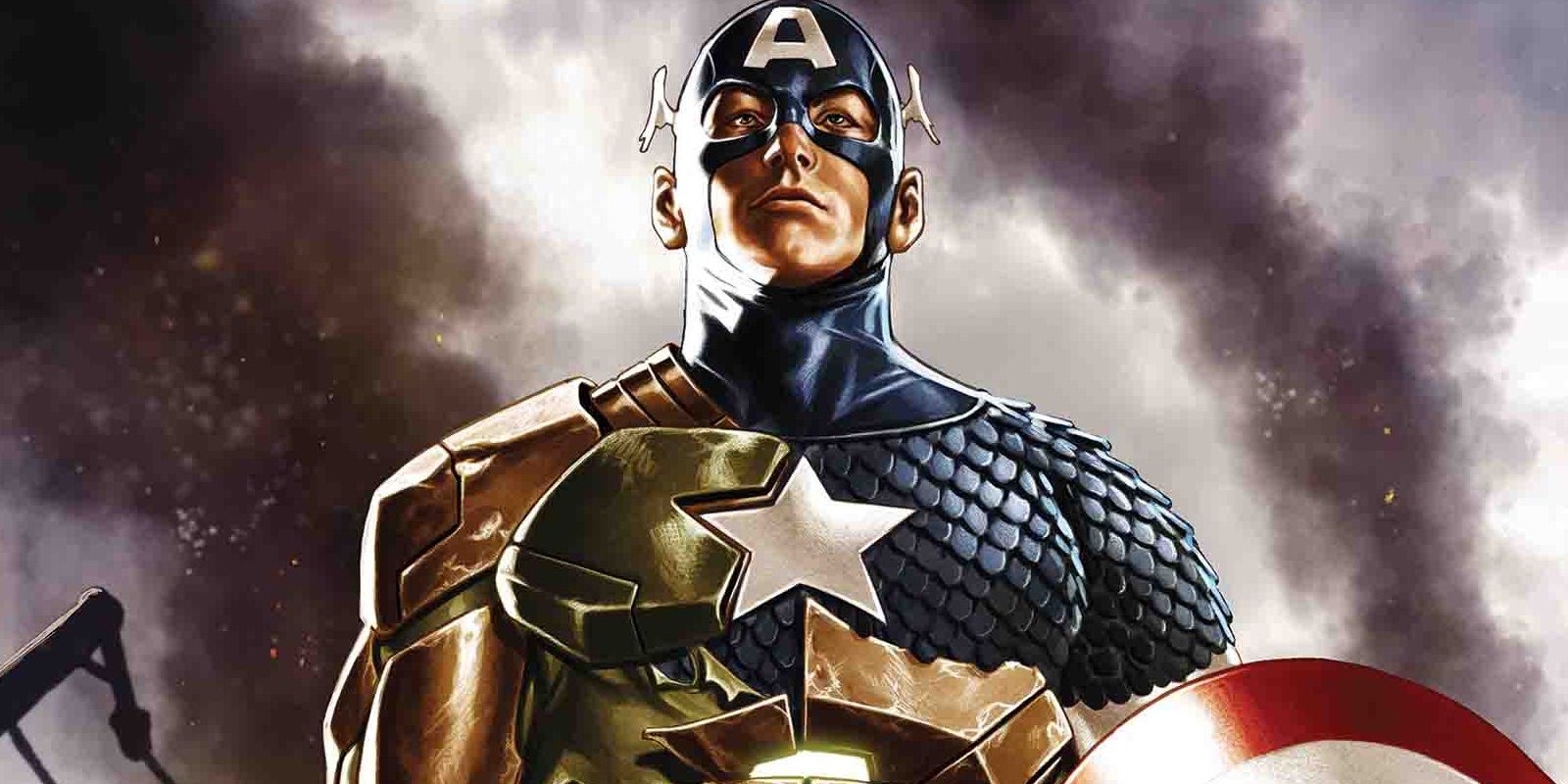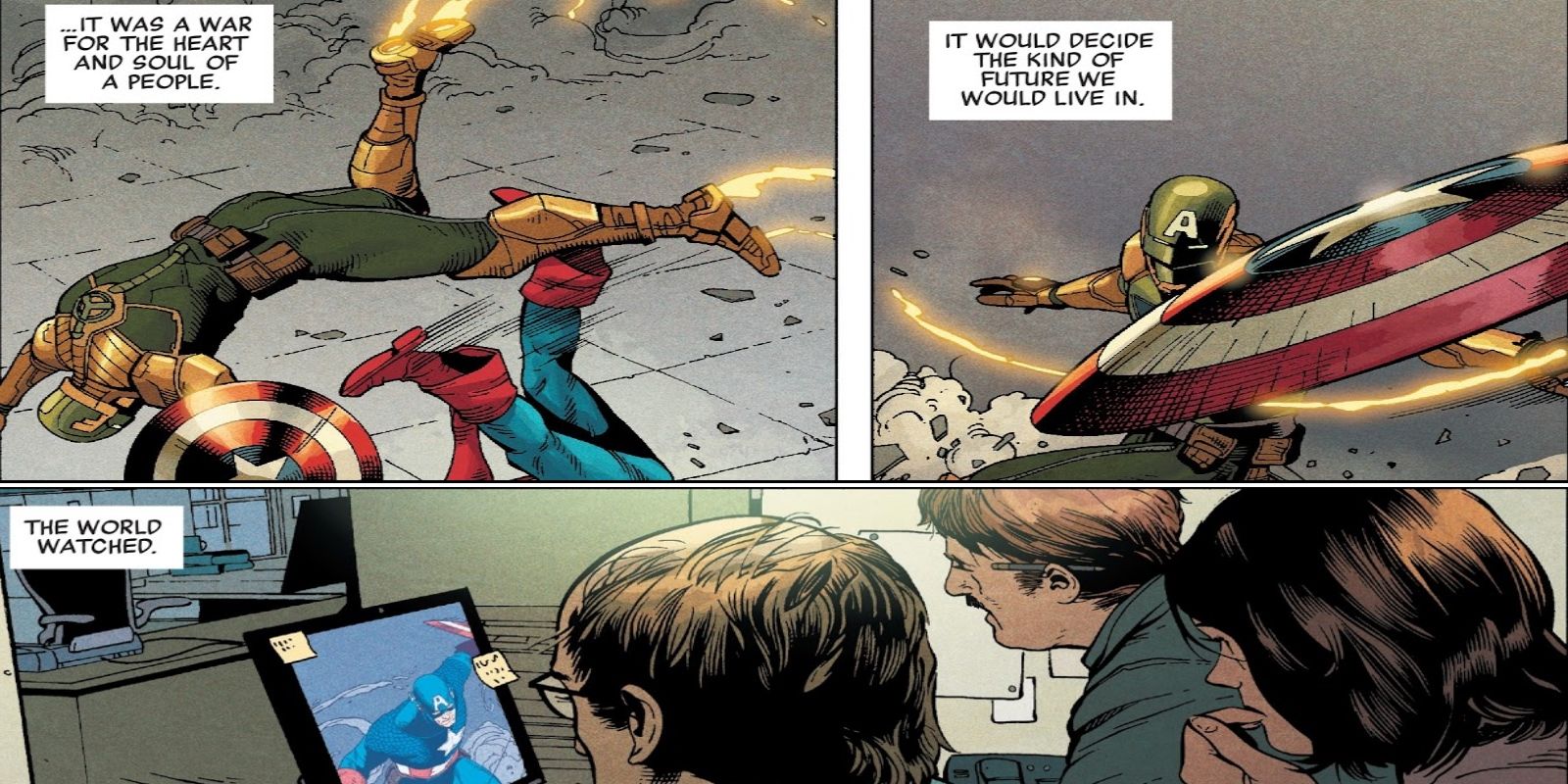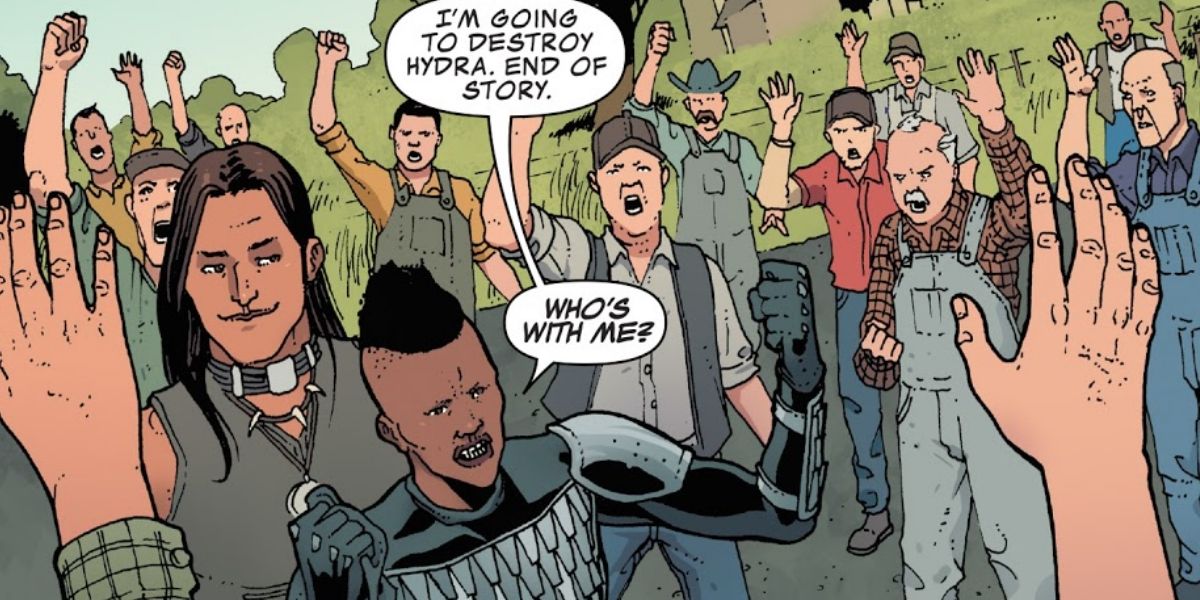Warning: Contains SPOILERS for Secret Empire #10 and Secret Empire: Omega #1.
–
All in all, Marvel’s Secret Empire was an enjoyable comic book event, but it sent a few mixed messages. Writer Nick Spencer spent a year crafting Steve Rogers into an untrustworthy yet principled version of himself, or Hydra Captain America. His history was tweaked, thanks to Red Skull and his Cosmic Cube, Kobik, (a Marvel genie of sorts), and he betrayed his friends’ trust and the entire populace of the United States, reimagining it as a Hydra state in his quest to “fix” the world. Spencer’s winding tale also created an intriguing and topical political allegory about a popular figure using his own charisma and perceived virtues to subvert authority and subjugate the planet.
Empire culminated in a showdown of epic proportions, as Hydra Cap faced down Earth’s Mightiest Heroes in Washington D.C. Endowed with the power of a god, thanks to a mostly assembled Cube, Rogers came dangerously close to reimagining the planet in Hydra’s image (technically, he did for several moments). Thankfully, everything panned out the Marvel Universe, as the combined efforts of the planet’s champions took down Supreme Leader Rogers.
Due to the wealth of story arcs Marvel had to wrap up, as well as the Generations tie-ins, Secret Empire was jammed to bursting with subplots. As a result, it concluded in a relatively unsatisfying manner, which is a shame, because the story could have ended with a far-greater message of hope.
Deliver Us, Superheroes
Throughout the course of Cap’s Secret Empire saga, hope is held aloft as the ultimate weapon. Steve Rogers’ time in The Vanishing Point (essentially, Kobik’s subconscious) is rife with metaphorical moments that encourage or discourage his mental state. Despite the emphasis on positivity, the story arc actually plays out in a fairly cynical fashion.
While some pessimism is understandable, since the saga's conclusion was likely constructed during the divisive electoral campaign (or even the early days of the Trump presidency), the actual people and their anti-Hydra efforts have little visible bearing on the final outcome. True, the Inhuman and mutant revolts provide integral boosts to the Underground's fight against Hydra Captain America. Still, the general populace’s overwhelming acceptance of their fascist overlords remained a bitterly astute pill to swallow, one which saw minimal reversal as the story climaxed – and even resonates as a plot point in Secret Empire: Omega #1.
In the long run, this is a Marvel comic, and superheroes are the currency. If the cape and spandex set hadn’t overthrown Hydra, then what good are all their fantastical powers? The tale was also bookended by a human child Jason McAllister and his Inhuman brother Robert (aka “Barf,” who could materialize thoughts into physical existence), so included some of the "human element." Jason’s classmates even partook in the cleanup efforts at their house after the war, a gesture symbolic of humanity's better nature. At the same time, their good deeds felt like an afterthought to the overall saga. One good-guy internal Steve Rogers and one Cosmic Cube and *poof* all Hydra Cap's evil deeds are erased from history, sort of.
Despite the pessimistic outro, where HydraCap reminds Steve Rogers that many "willingly" enjoined his fascist regime, the signs of resistance actually appeared more prominently in our own country than in its fictional representation. The Hydra overthrow was far more hostile and violent, but most of the populace seemed nonchalant, if not elated, with the regime change. Contrarily, when faced with controversial maneuvers in our divisive post-election country, people rallied around perceived injustices. Many of the current administration’s questionable maneuvers – including the constitutionally problematic immigration ban, tabled the logistically nonsensical border wall, and scuttled a repeal of the Affordable Care Act for the time being – were met with rapid and stern responses. If the real-world “opposition” was highly motivated and compassionate, what happened to the fictional one?
The People Vs. Steve Rogers
Typically, story lines are finalized months or even years before publication, but Secret Empire’s last chapters were tweaked as late as mid-May. It's unclear how Marvel added to or expanded their 9 issues into 10 (and the follow-up Omega), but they could have slipped in more partisan effort into the book. In a superhero book chocked full of Cosmic Cube fixing, Avengers assembling, and a Steve vs. Iron Hydra Steve brawl, tacking on extra panels might have bogged things down but would've added an extra dimension. The conclusion doesn't even mention the building populist resistance established in Spencer’s Captain America: Sam Wilson book and David F. Walker’s Occupy Avengers tie-ins.
Admittedly, a legion of normal troops wouldn’t scratch a deified Hydra Cap. At the same time, the climactic brawl – which Spencer referred to as a “war for the heart and soul of a people,” one that would “decide the kind of future we would live in...what our dreams would be” – is determined by America's Steve Rogers avatar. Hydra’s fall from power is the key moment in Secret Empire but has little to do with the people, who, rather than tearing down the machinery of oppression, watch events unfold on TV and the Internet.
Sure, showing people glued to screens rather than getting involved is somewhat realistic, but Secret Empire is a work of fiction. Imagine the power of a sequence where Hydra Cap hears the deafening roar of an anti-fascist mob closing in as reformed Cap deals him a knockout blow. Readers, who live in a heavily polarized world, would've enjoyed a moment of solidarity. Heck, even a few well-placed panels illustrating a greater citizen involvement could've added a bonus layer of positivity to the climax. After all, shouldn’t our fiction paint life in a better light and inspire optimism?
–
Secret Empire is an intriguing and entertaining, if somewhat flawed, event. Understandably, a major comic book epic is filtered through editorial, marketing, and other staff before it comes anywhere near print, so the artist's vision can disappear beneath the bureaucracy. In addition, the event needed to construct a scaffolding for future stories and plotlines, something which can clutter up even the most masterful story. As such, Marvel's latest saga wrapped up with a bang but without much satisfaction, since the actions of a handful of superpowered champions secured freedom for the world. Meanwhile, Secret Empire: Omega #1 sets the stage for future Hydra storylines, including the return of "evil" Steve.
While the need for vigilance is appreciated during the uncertain times we live in, Secret Empire ended with more of a nod to future events than a real sense of what the future can hold (rather than what it might hold). Were there a true cost for Hydra Cap's actions, not just a MacGuffiny wave of the hand, perhaps the Marvel Universe actually would have changed immeasurably, both in how they deal with their readers and with creating and following-through with meaningful events. Secret Empire could have included the reader in the fight against the bad guys and concluded in a truly inspiring and earth-shaking way.
Next: The REAL Captain America Returns To Crush Secret Empire
Secret Empire #10 is currently available
Source: CBR.



